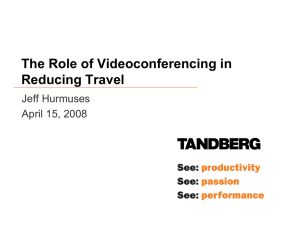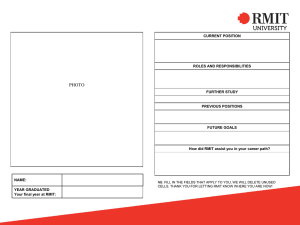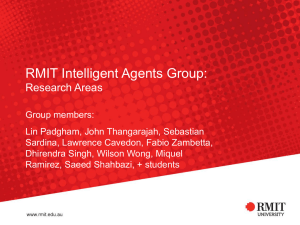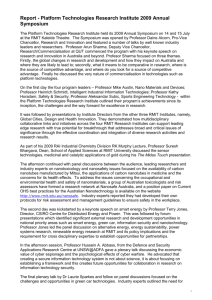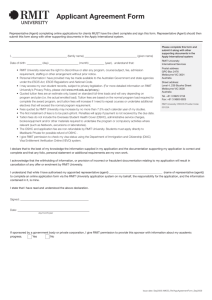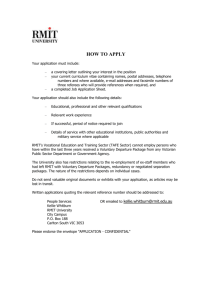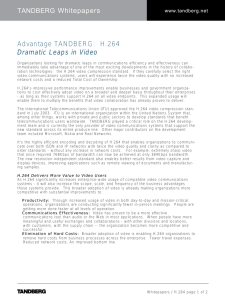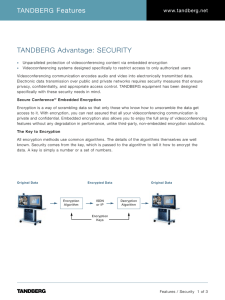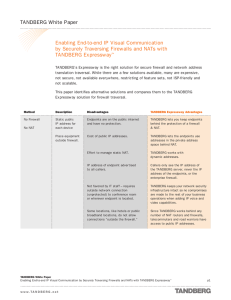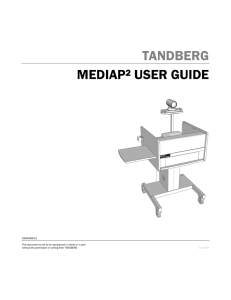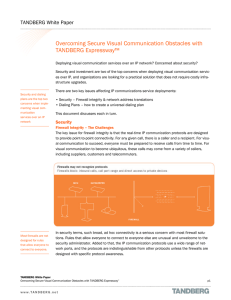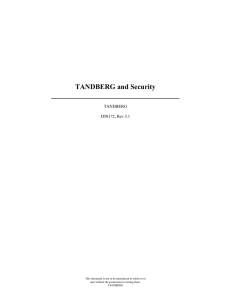Strategic Relevance
advertisement
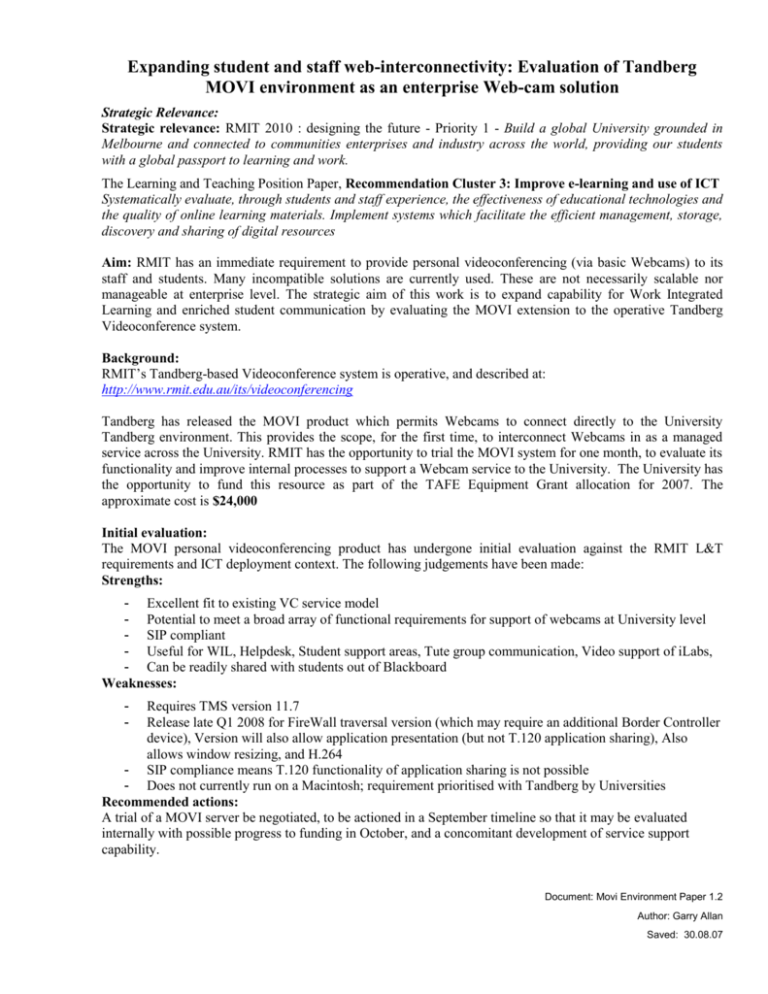
Expanding student and staff web-interconnectivity: Evaluation of Tandberg MOVI environment as an enterprise Web-cam solution Strategic Relevance: Strategic relevance: RMIT 2010 : designing the future - Priority 1 - Build a global University grounded in Melbourne and connected to communities enterprises and industry across the world, providing our students with a global passport to learning and work. The Learning and Teaching Position Paper, Recommendation Cluster 3: Improve e-learning and use of ICT Systematically evaluate, through students and staff experience, the effectiveness of educational technologies and the quality of online learning materials. Implement systems which facilitate the efficient management, storage, discovery and sharing of digital resources Aim: RMIT has an immediate requirement to provide personal videoconferencing (via basic Webcams) to its staff and students. Many incompatible solutions are currently used. These are not necessarily scalable nor manageable at enterprise level. The strategic aim of this work is to expand capability for Work Integrated Learning and enriched student communication by evaluating the MOVI extension to the operative Tandberg Videoconference system. Background: RMIT’s Tandberg-based Videoconference system is operative, and described at: http://www.rmit.edu.au/its/videoconferencing Tandberg has released the MOVI product which permits Webcams to connect directly to the University Tandberg environment. This provides the scope, for the first time, to interconnect Webcams in as a managed service across the University. RMIT has the opportunity to trial the MOVI system for one month, to evaluate its functionality and improve internal processes to support a Webcam service to the University. The University has the opportunity to fund this resource as part of the TAFE Equipment Grant allocation for 2007. The approximate cost is $24,000 Initial evaluation: The MOVI personal videoconferencing product has undergone initial evaluation against the RMIT L&T requirements and ICT deployment context. The following judgements have been made: Strengths: - Excellent fit to existing VC service model - Potential to meet a broad array of functional requirements for support of webcams at University level - SIP compliant - Useful for WIL, Helpdesk, Student support areas, Tute group communication, Video support of iLabs, - Can be readily shared with students out of Blackboard Weaknesses: - Requires TMS version 11.7 Release late Q1 2008 for FireWall traversal version (which may require an additional Border Controller device), Version will also allow application presentation (but not T.120 application sharing), Also allows window resizing, and H.264 - SIP compliance means T.120 functionality of application sharing is not possible - Does not currently run on a Macintosh; requirement prioritised with Tandberg by Universities Recommended actions: A trial of a MOVI server be negotiated, to be actioned in a September timeline so that it may be evaluated internally with possible progress to funding in October, and a concomitant development of service support capability. Document: Movi Environment Paper 1.2 Author: Garry Allan Saved: 30.08.07
